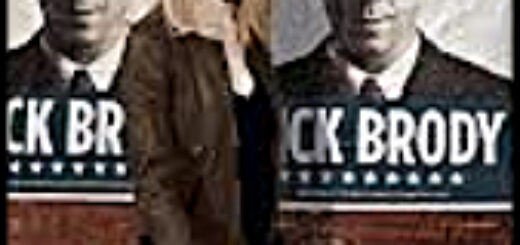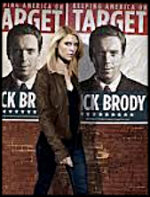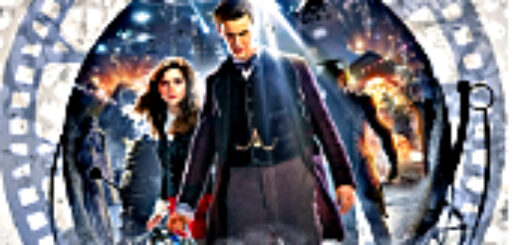Jen Krueger: A Mislabeled Meltdown
 At least three nights a week, I do long form improvisation. Sometimes I do this in a blackbox theater for a handful of other improvisers, and sometimes I do it in a hall at the Staples Center for hundreds of comic book convention attendees. Either way, I get in front of my audience, take a suggestion, and spend the next 15 to 60 minutes pulling things out of thin air in the hopes of making that audience laugh. I’ve been doing improv for almost five years now, and though I’ve sharpened the skills associated with it, that doesn’t mean it is (or ever will be) easy to get in front of people and make something up.
At least three nights a week, I do long form improvisation. Sometimes I do this in a blackbox theater for a handful of other improvisers, and sometimes I do it in a hall at the Staples Center for hundreds of comic book convention attendees. Either way, I get in front of my audience, take a suggestion, and spend the next 15 to 60 minutes pulling things out of thin air in the hopes of making that audience laugh. I’ve been doing improv for almost five years now, and though I’ve sharpened the skills associated with it, that doesn’t mean it is (or ever will be) easy to get in front of people and make something up.
I’ve also done my fair share of working with something written. Whether it be public speaking or performing from a script, I’ve gotten in front of a group of people with the objective of delivering some manner of copy more times than I can count. While some people find a script to be a comfort when speaking or performing, I definitely do not. There are hundreds of ways improvisation can go well or poorly, but having scripted lines means all you need to do to get it wrong is flub one of those lines. I feel pressure to be faithful to what’s been written and it makes this endeavor at least as challenging as improv, if not moreso. But whether dealing with improvisation or something scripted, it’s a pretty universal human feeling to be nervous in front of an audience since no one wants to look bad or mess up.
So why is everybody giving Michael Bay so much shit about the Samsung CES press event?
Look, I get that some of Bay’s works are so big and silly that they’ve been the source of many punchlines in the past. I’m sure I’ve even made a Transformers 2 joke or two myself at some point. So when I saw tons of tweets and Facebook posts about Bay having a “meltdown” on stage, I figured someone moved beyond good-natured ribbing and into mean-spirited mocking of his work to his face, prompting the director to lose his temper and storm off. Curious, I watched a video of his supposed “meltdown” and (god help, I’m going to sound like a Buzzfeed headline) I was amazed at what actually happened.
Bay later explained on his blog that after he accidentally skipped one of the lines of the host speaking with him onstage, the teleprompter feeding them both their copy tried to compensate for the jump and went on the fritz. Watching the video, the moment the script is lost is clear even before Bay tells the host that he’s lost the prompter, and it’s this moment that made me feel bad for him. The nerves jangling as he tries to continue after that are palpable, and it’s not long before he’s simply unable to continue and walks offstage with an apology. The clip I’d thought might give me a chuckle actually ended up making my skin crawl because it and the way people have been labeling it made me so uncomfortable.
Admittedly, there are better ways Bay could’ve handled losing his place in his copy. He could’ve vamped for a moment while the teleprompter operator got the script back on track, or taken a deep breath to shake off the prepared text entirely and fully committed to winging it. I’m sure the fact that he’s a hugely famous film director means many people assume he’s used to speaking off the cuff, but the difference between speaking from a script and improvising is the difference between having turn-by-turn directions to get somewhere and just going out for a drive. When you’ve left the house with turn-by-turn directions, losing them suddenly is nerve-wracking, no matter how many times you’ve been behind the wheel. So what exactly is it about Bay’s response to this script flub that bears labeling what happened a “meltdown”?
Nothing. There was no yelling, no veins bulging, no expletives or accusations laying blame. Bay left the stage calmly and quietly to save face when he knew the snafu had unnerved him beyond the ability to continue, which is a fairly tame reaction when all things are considered. I suspect Bay’s preexisting status as a pop cultural punching bag is the only reason he’s being mocked over this. If the same thing happened to a student in a high school play or a scientist giving a TED Talk, the reaction from those witnessing it would likely just be sympathy. Personally, I’ve never gotten so flustered on stage that I’ve had to walk off, but I hope that if I did, I’d handle it as gracefully as Michael Bay.
Wait, did I just use “Michael Bay” and “gracefully” in the same sentence? There’s a first time for everything.
Ba dum ching!
REVISED COLUMN SCHEDULE FOR THIS WEEK:
THURSDAY 2:30 EST USA: Tweeks!
THURSDAY 5:00 EST USA: Mike Gold
FRIDAY: Dennis O’Neil, Martha Thomases, Michael Davis





















